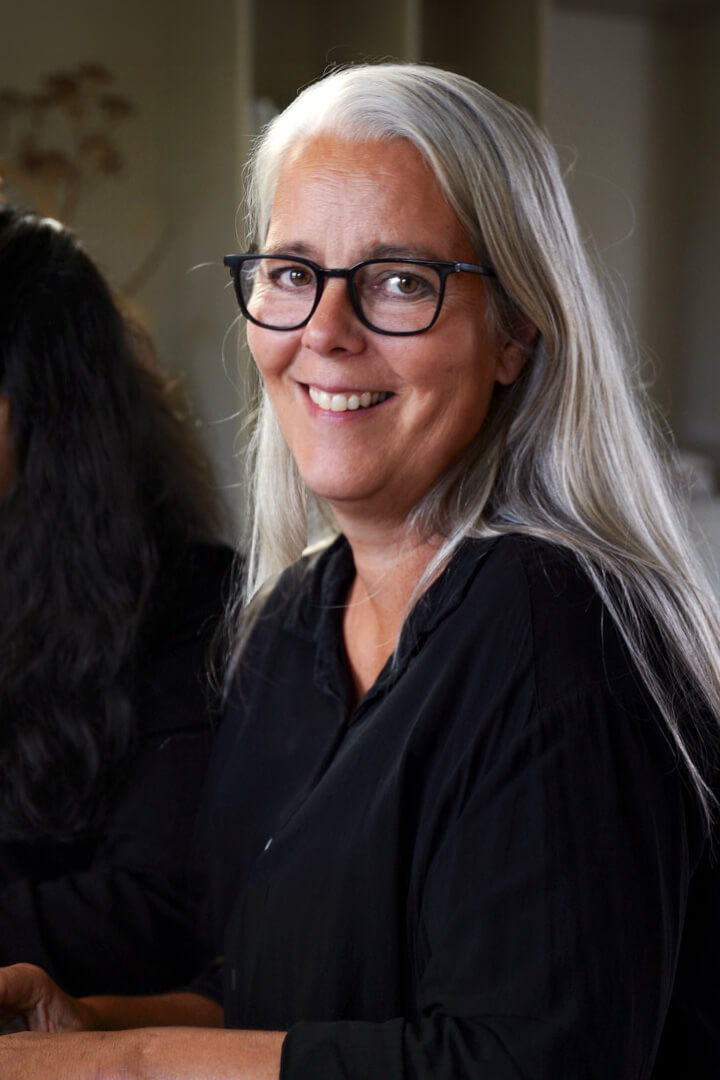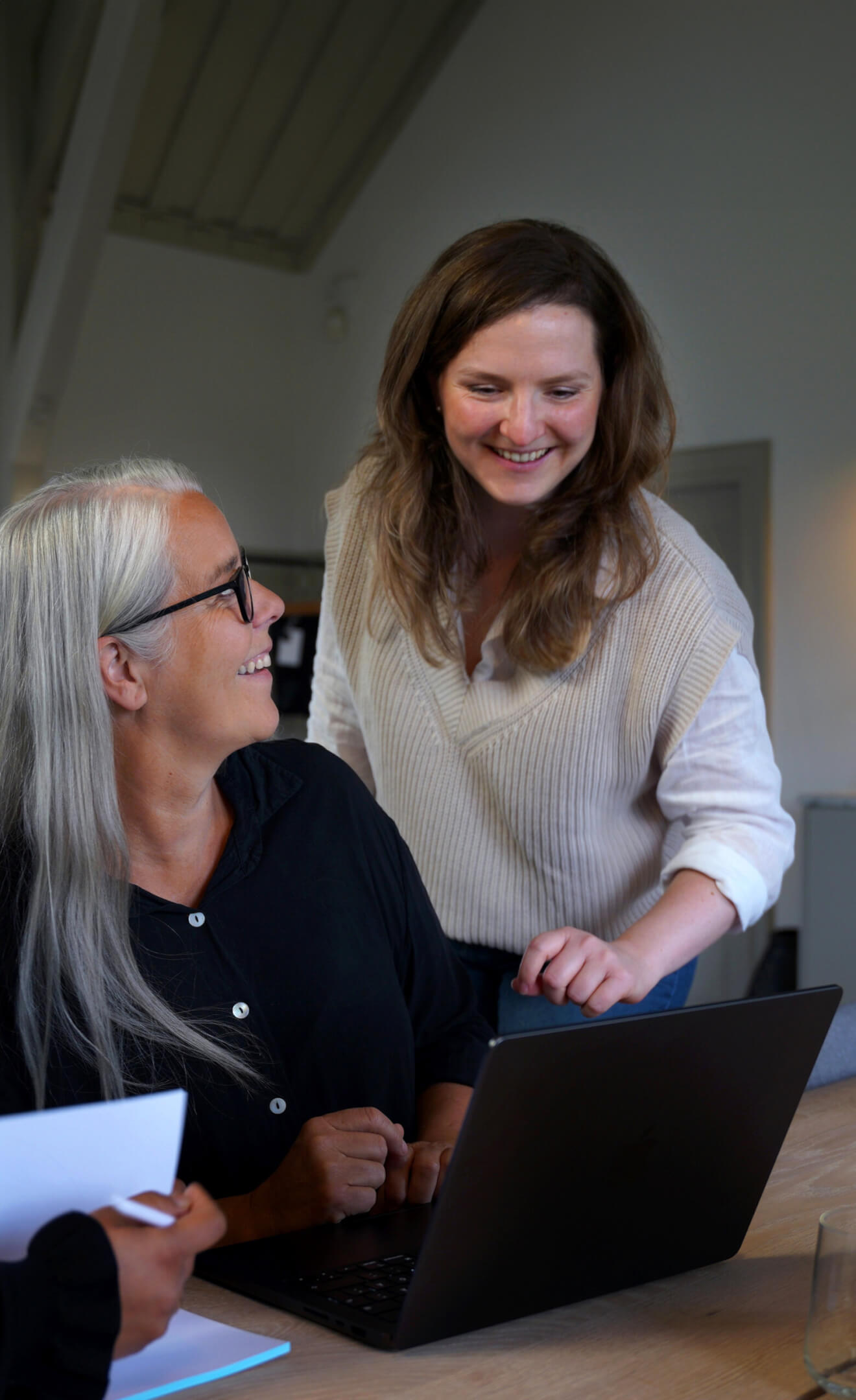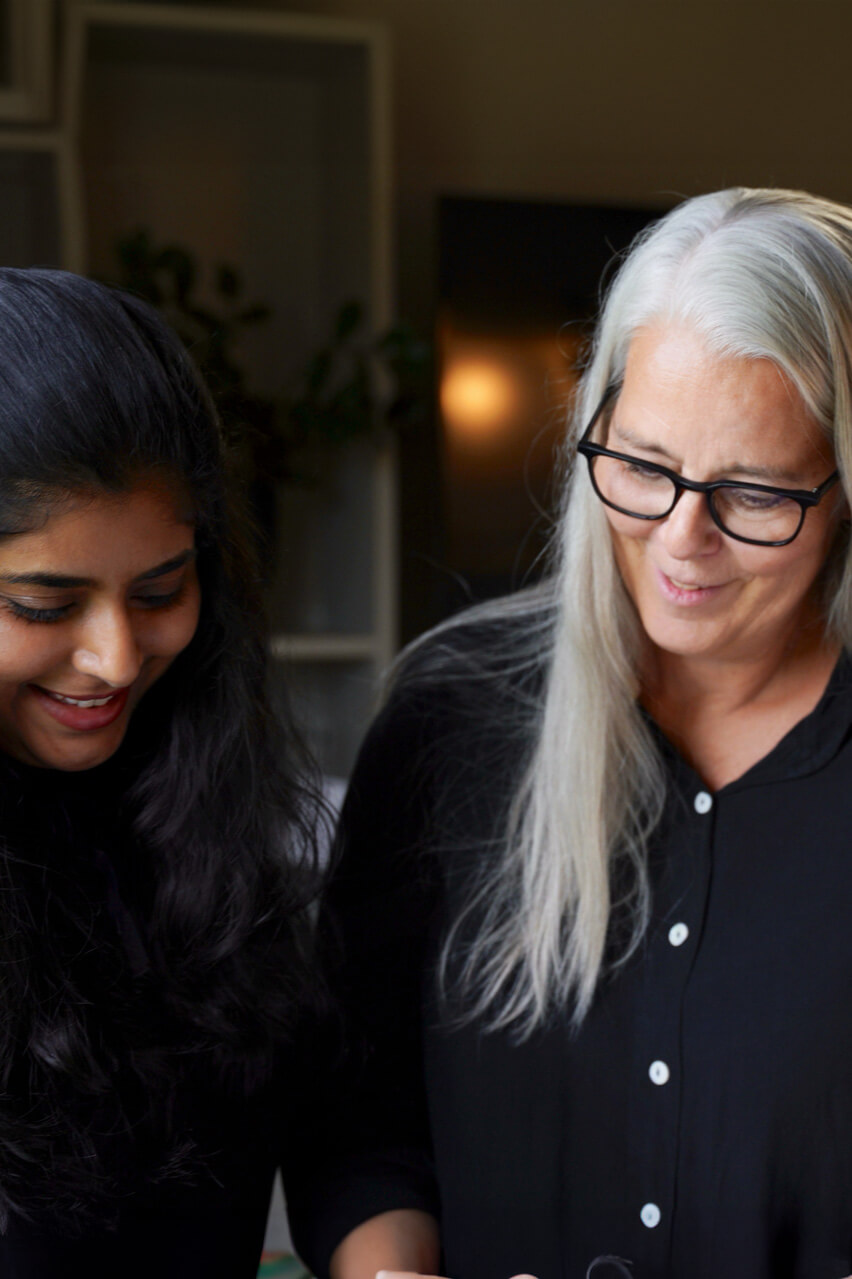
Part of a series:
Inside the Specialist Departments
Trims and packaging with sustainability in focus
A Conversation with Nilörn’s Sustainability Manager Anna-Karin Wårfors.
Inside the Specialist Departments is our series highlighting the people behind the labels – our specialists driving progress in innovation, sustainability, and compliance at Nilörn. In this edition, we speak with Anna-Karin Wårfors, Sustainability Manager, about her role, current priorities, and how her team is navigating a time of rising expectations and responsibility.
A Global perspective on sustainability
Since joining Nilörn in 2017, Anna-Karin Wårfors has played a key role in integrating sustainability across the company’s operations – from supply chains to product development and client collaboration. With a background in CSR at Gina Tricot and purchasing at Corporate Express Sweden, she also holds a master’s in international business from Linköping University. Outside of work, she lives with her family on a farm with Gotland sheep and miniature Shetland ponies, and she also serves as a national show jumping judge.
What initially attracted Anna-Karin to Nilörn was its international presence. “Working with global brands offers diverse perspectives and insight into how sustainability is approached in different markets and regions,” she explains. A key responsibility when she joined Nilörn was building the reporting structure for sustainability initiatives. “This involved developing frameworks to track and measure progress toward the company’s sustainability goals.”

Staying ahead of regulation and industry change
The field of sustainability has changed significantly since Anna-Karin started at Nilörn. “It’s a constantly evolving area,” she reflects. “Much of the development is driven by tightening regulations, but also by a genuine ambition to improve.”
To stay ahead, her team works closely with internal departments and the wider supply chain—sharing knowledge, adapting strategies, and aligning with industry expectations. “We want to remain a relevant supplier, which means being proactive and well-informed.”
Legislation like the Corporate Sustainability Reporting Directive (CSRD) and the
European Sustainability Reporting Standards (ESRS) have already made a major impact.
“We’ve invested a lot of time to understand how these frameworks affect our operations and what data we need to collect,” Anna-Karin shares.
Traceability has also become a growing priority. “Our clients are at the heart of what we do,” she explains. “To continue being a preferred supplier, we need to understand their sustainability goals and deliver tailored solutions that support them.”
This includes in-depth supply chain mapping — a process that often demands substantial time and resources to gather the necessary data but is essential for ensuring transparency and accountability.
Another critical element is product certification. “Having the correct certifications demonstrates compliance and builds trust with clients and stakeholders,” she adds.
“It’s not just about staying aligned internally – we’re also responsible for keeping our suppliers informed. This includes sharing updates on regulatory changes, best practices, and technological developments. In doing so, we help them stay aligned with our standards, which ultimately strengthens the efficiency and reliability of the entire supply chain.”


Rapid technological advancements are transforming how we approach sustainability, offering new tools and solutions to help us reach our goals.
Technology as a driver of progress
Alongside regulatory adaptation and meeting clients’ needs, Anna-Karin highlights the importance of embracing emerging technologies to scale sustainability. “We’re constantly adapting to new platforms and client systems. When clients implement new tools to improve supply chain operations, we must stay agile and responsive. That includes delivering reliable and accurate data to support those systems,” she says.
When asked what excites her most, Anna-Karin points to innovation. “Rapid technological advancements are transforming how we approach sustainability, offering new tools and solutions to help us reach our goals. I believe artificial intelligence (AI), for example, will support us in better monitoring and managing data, particularly around our environmental impact.”
Cross-team collaboration
Effective collaboration is central to sustainability at Nilörn. “Each team member contributes unique skills, and we make a point of sharing knowledge regularly,” says Anna-Karin. “We work closely across departments through our CSR and Sustainability Advisory Team (CSAT), which brings together representatives from design, purchasing, sales, marketing, and CSR. This is how we ensure best practices are embedded across the company.”
An internal working group also focuses on preparing for upcoming regulations like the CSRD. “It includes representatives from senior management, HR, CSR, purchasing, and finance,” she explains. “In 2025, our primary focus is on implementing our enhanced reporting structure and moving forward with the double materiality assessment process. The group also addresses key areas such as managing ESG risks and identifying opportunities.”

Projects that make a difference
The company is also investing in reducing emissions, moving toward renewable energy and improving efficiency to reduce its carbon footprint.
At the same time, ESG integration is becoming embedded in Nilörn’s strategy.
“It’s not only about compliance – it’s about building a more resilient and responsible organisation over the long term.”
Anna-Karin is optimistic about what lies ahead. “We’re committed to being a preferred supplier to clients by staying ahead of regulations and fostering a culture of sustainability,” she says. “We have a fantastic team dedicated to this mission and we’re actively exploring new technologies, such as AI and digital transformation, to improve our sustainability management and reporting.
As expectations grow, so does the need for seamless collaboration. “Working in silos is no longer viable.
What is required are integrated systems and partnerships across departments and the entire supply chain,” she concludes.
“In the near term, our focus is on tracking our environmental footprint and continuing to push forward with improvements that make a real difference.”
This article is part of our series spotlighting Nilörn’s specialist departments. Join us next time as we highlight our expertise within our RIS (Retail Information Service) Department.
Copyright © 2025 NILÖRNGRUPPEN AB / Privacy Policy / Terms and conditions / Modern Slavery Act (PDF)